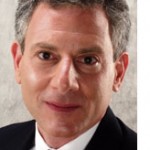By Gary Rotto

SAN DIEGO — As I started out this column, my intent was to make a statement for the “ownership” of the term Holocaust.
As long as I can remember, I always had a visceral reaction when this term was used by others to describe a potential disaster. To me, anything would pale in the comparison to the planned mass extermination of the Jewish people by the Nazi regime. More that my dander would be up if someone would talk about a Nuclear Holocaust, the fear of what might occur if such and such country obtained the capability to manufacture nuclear weapons. I’d pause and diplomatically but firmly tell someone that I was personally offended that they used the word Holocaust when talking about an Environmental Holocaust, the destruction of the environment due to a particular heinous land development plan. To me, the Holocaust was about wiping out the Jewish people.
I know that Shoah has been the Hebrew term seemingly used interchangeably with the term Holocaust. As I sought an opening to this column, the research into this term opened my eyes. The word Holocaust comes from the greek term holokauston, which means “burnt as a whole”, that is, consumed totally by fire. But it also suggests that this is a burnt offering, a sacrifice. I had to lean back in my chair as I looked at the etymology of the word and the images it suggests. Certainly, our people were slaughtered by many means, and in a way, European Jewry was close to totally consumed in this way. But I do not believe that 6 million Jews were killed as a sacrifice – whether to God or to other nations – as if we traded their lives for the establishment of the State of Israel.
My image of God does not allow for a being so callous as to call for the destruction of life in that way. My image is of a loving being that weeps when others are in pain, that looks for us to prevent mass slaughter, that cheers when we help others and finish the work of creation, that partners in the completing of the world, of building a better world. God could not have wanted or accepted a sacrifice of millions of people in exchange for anything.
This is why Shoah, Hebrew for catastrophe, makes so much more sense to me. It truly was a catastrophe for our people, not one of commanded sacrifice. And as I was reminded at services on Friday night, April 17, the actual reference to the day is Yom Hashoah Ve-Hagevurah, the day of catastrophe and heroism.
So as we all search for meaning at this time of year, as we commemorate the Shoah, I find new meaning in the discussion of this important time in the history of our people. A bit of me will recoil when I hear the word Holocaust misappropriated for other political causes, but I will know that the real term, the real meaning is in the word Shoah. May their memory be for a blessing.
*
Rotto is a freelance writer based in San Diego. Your comment may be sent to gary.rotto@sdjewishworld.com, or posted on this website provided that the rules below are observed.
__________________________________________________________________
Care to comment? We require the following information on any letter for publication: 1) Your full name 2) Your city and state (or country) of residence. Letters lacking such information will be automatically deleted. San Diego Jewish World is intended as a forum for the entire Jewish community, whatever your political leanings. Letters may be posted below provided they are responsive to the article that prompted them, and civil in their tone. Ad hominem attacks against any religion, country, gender, race, sexual orientation, or physical disability will not be considered for publication. There is a limit of one letter per writer on any given day.
__________________________________________________________________
From Joanie Holzer Schirm, Orlando, Florida, USA
I sincerely appreciate Gary Rotto’s well thought out words in his column about “Holocaust and Shoah meanings and Emotions” – from his image of the kind of God I choose to follow, to his proposal as Shoah for the most suitable name of what happened during WWII. My father Oswald Holzer was Czech and lost family (44 perished), friends, and homeland after the Nazis arrived in 1939. He managed to escape to China. What happened was indeed a catastrophe for so many, certainly even beyond those lost lives (including my grandparents likely at Sobibor Death Camp)and the survivors to those whose heritage and families are forever changed. From a trove of letters from that era that my father hid away, I’ve learned in the letter writers own words what that catastrophe meant to their lives then – and now. Yes, “may their memory be for a blessing.” Thank you.